
LGBT
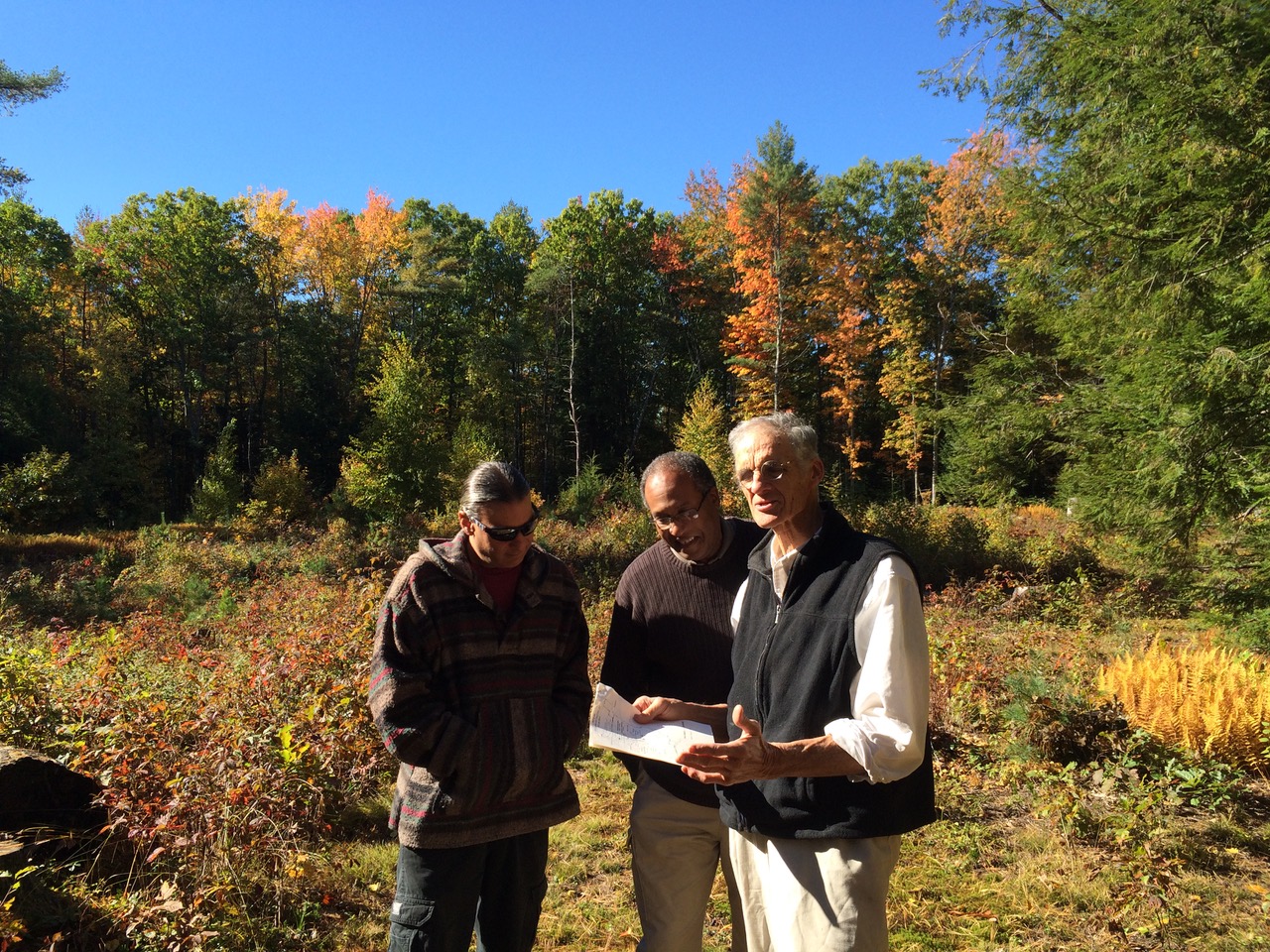
Larry Buell’s relationship with the Nipmuc Nation began long before he was born—dating back 14 generations, to be exact, when his direct ancestors secured land from the local tribes in the area that is now Bradley Airport in Connecticut. Since then, his family history has been intertwined with the tribe, and in many ways, he has spent his life fighting to return the land the Nipmuc tribe once owned.
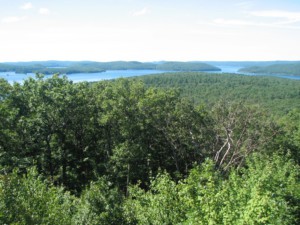
Newly returned original land in the Quabbin/Nichewaug bioregion in Petersham, Mass.
These efforts included a trek 20 years ago, during which Buell was part of a walk across Massachusetts to advocate for the return of land to local Indigenous groups. The message in this herculean accomplishment: “honor of life, as witnessed with Indigenous ways, is central to the regenerative future of the planet.”
Decades after Buell’s epic walk, the indigenous people of the Nipmuc tribe have been able to spend time on the newly returned original land in the Quabbin/Nichewaug bioregion in Petersham, Mass., ushering in a new generation for the Nipmuc Nation.
The indigenous people of the Nipmuc tribe originally occupied the territory of Nippenet, or “the freshwater pond place.” This area covered a wide swath of resource-rich lands that today encompasses central Massachusetts, the northwest portion of Rhode Island, and the Connecticut River Valley. By the 19th Century, fewer members of the tribe were able to live on what was left of reserved lands, forcing many of them to seek survival in surrounding areas.
Today, the Nipmuc tribe is one of New England’s most historic and largest native communities—and acre by acre in Petersham and beyond, they are starting to see portions of their original land return to them, thanks in large part to the efforts of numerous organizations, including The Wild Earth Institute, Nipmuk Cultural Preservation, Inc., and Life Comes From It, a donor-advised fund at Tides Foundation.
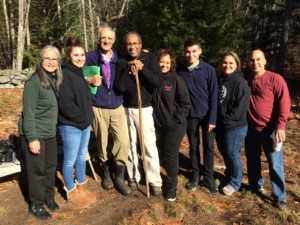
“These efforts to return land to the Nipmuc Nation are reflective of a larger national movement to repatriate territory back to its former owners. ” (Photo © University of the Wild)
“With the state of the world—from climate disruption, cultural fragmentation, and social and environmental injustices—it is vital that the teachings and cultural ways of all Indigenous peoples become part of the transformation to a sustainable and regenerative planet,” said Buell, executive director of the University of the Wild and president of The Wild Earth Institute. Under his leadership, the nonprofit organization, which worked with Nipmuk Cultural Preservation, Inc., raised $150,000 to prevent development on certain areas of the original Nipmuc land. Together, the organizations secured an agreement with donors and short-term shareholders ensuring that portions of the secured land would be transferred back to the Nipmuc tribe.
“The project we provided is a replicable model and has already created a copycat effect, with a number of family landowners wanting to transfer land to the Nipmucs,” said Buell. “All the land that these families own and the land of the University of the Wild will eventually have a ‘right of first refusal’ or a direct donation back to the Nipmucs.”
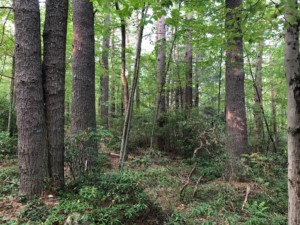
“In June, a $25,000 grant from Life Comes From It led to the purchase of an additional 3 acres of original Nipmuc land in the Quabbin/Nichewaug Bioregion that was then returned to the tribe.” (Photo © University of the Wild)
These efforts to return land to the Nipmuc Nation are reflective of a larger national movement to repatriate territory back to its former owners. A primary reason for this is due to how Indigenous groups manage the land, a style that has evolved over many centuries of cultures that have a more holistic understanding of ecosystems and the natural world, formally called Traditional Ecological Knowledge. The practice, according to a recent Yale report, is “increasingly seen by conservationists as synergistic with the global campaign to protect biodiversity and to manage nature in a way that hedges against climate change.”
In California, a land trust recently transferred 1,199 acres of redwood forest and open land to the Esselen tribe. In Maine, the Five Tribes of the Wabanaki Confederacy recently reacquired a 150-acre island with the help of land trusts. Similar land transfers to tribes have taken place in Oregon and New York, among other states.
It is because of this mission to nurture, respect and safeguard our planet that Buell believes Native American culture should be taught and shared, which is why he supports plans for an education center to be built on land returned to the Nipmuc tribe.
In 2019, Nipmuk Cultural Preservation Inc. secured through donations and shares 21 acres of forest adjoining Earthlands Program Center, founded by Buell, and the University of the Wild, as an opportunity to promote Native American history, culture, language and environmental awareness. The property sits alongside the proposed Eco-Campus of the University of the Wild, where the Nipmucs and the general public may receive college credit through a self-directed, mentored, hands-on curriculum.
In June, a $25,000 grant from Life Comes From It led to the purchase of an additional 3 acres of original Nipmuc land in the Quabbin/Nichewaug Bioregion that was then returned to the tribe. Beyond land, the funds also went toward securing peace within the tribe.
“Seth Weiner of Life Comes From It has been on the land and knew of its history and sacredness to the local Nipmuc Tribe,” said Buell. “And when we needed funds to secure the land and to heal an intertribal controversy the funds were provided by Tides through LCFI.”
According to Buell, the funding was instrumental in facilitating lines of communication between tribes—something that may grow more critical as land is returned to Indigenous groups, and as tribes forge a future firmly rooted in its past.
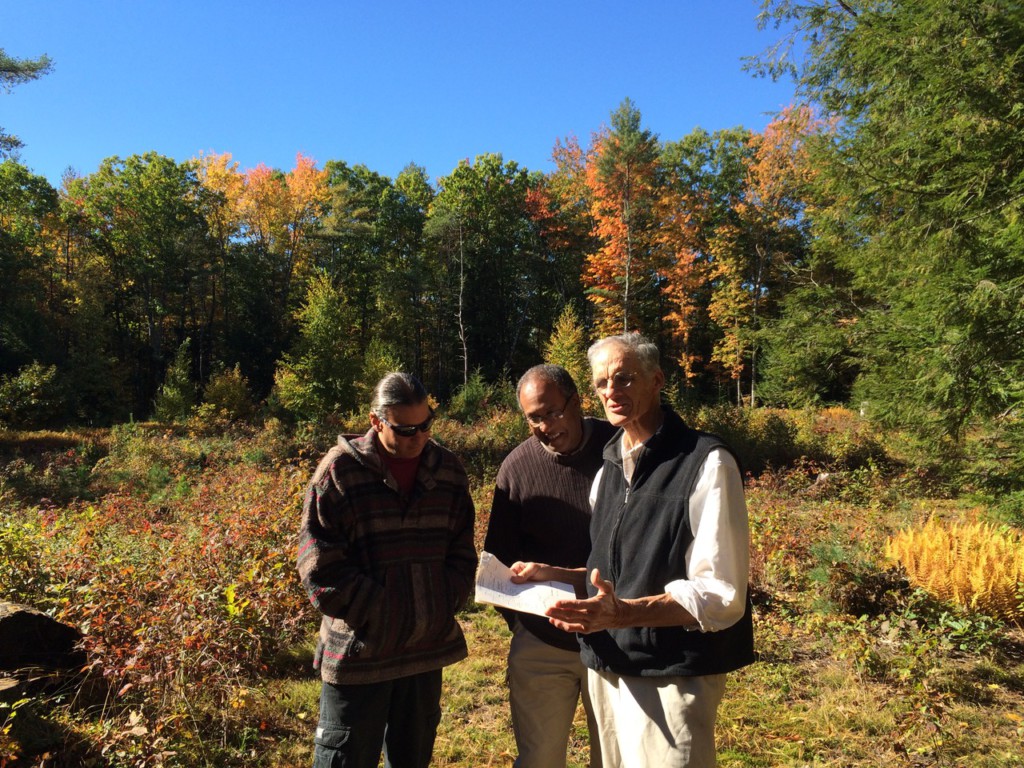
Left to Right: The late David “Tall Pine” White; Fred Freeman, NCP; Dr. Larry Buell (Photo © University of the Wild)
“On behalf of our ancestors and their descendants,” reads a statement on the Nipmuc Nation’s website, “it is the sacred mission of all the members of our community to preserve and promote the culture, language, and values of the Nipmuc People, while striving to improve the quality of life for all our citizens, including the generations to come.”

LGBT
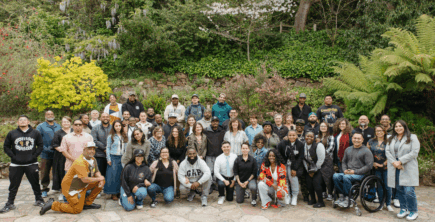
Corporate Partners

Philanthropy

Read the stories and hear the voices of social change leaders fighting for justice.